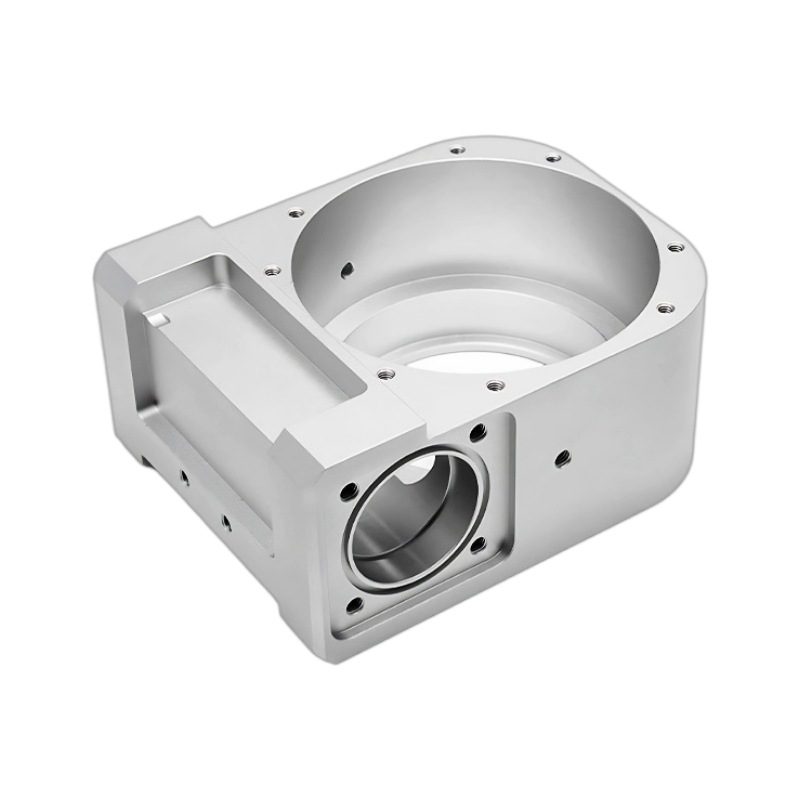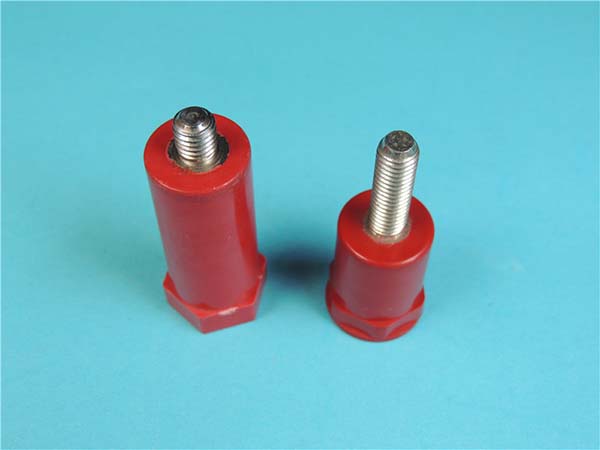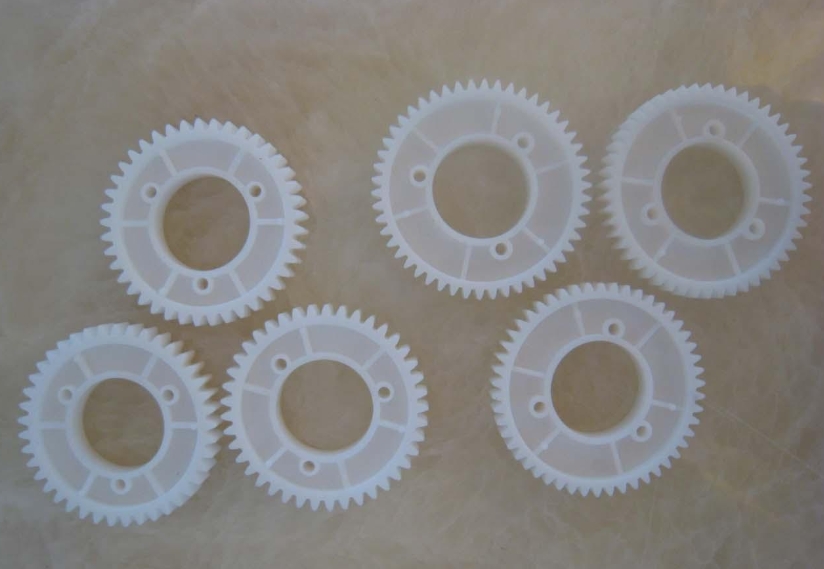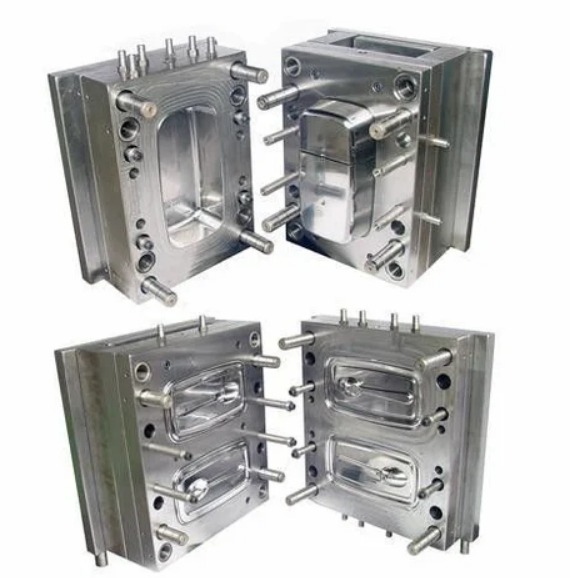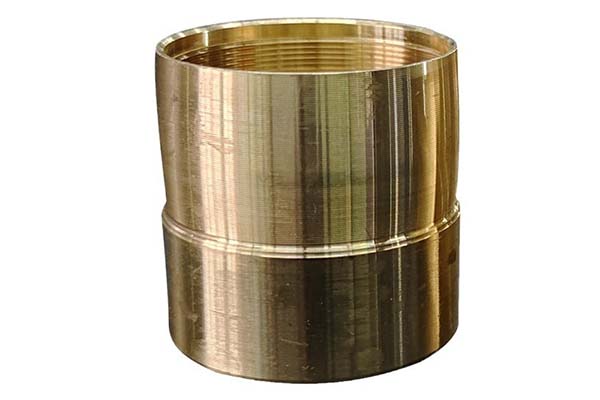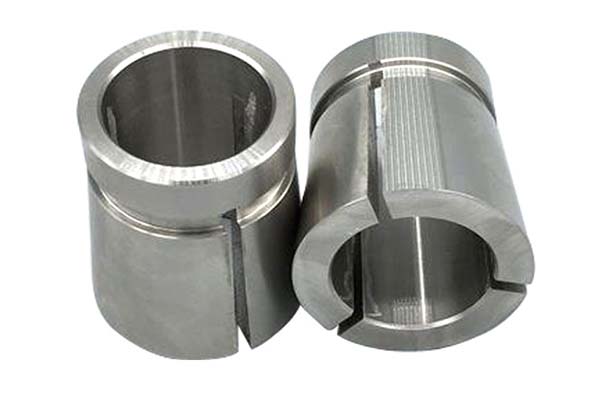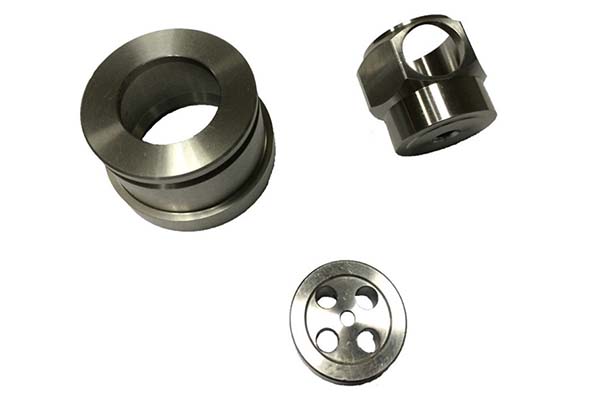Introduction
CNC machining, short for Computer Numerical Control machining, is a manufacturing process that uses pre-programmed computer software to control the movement of factory tools and machinery. This highly precise method can handle a wide range of materials, from metals like aluminum, stainless steel, to various plastics. It has revolutionized the manufacturing industry by enabling the production of complex parts with high accuracy and repeatability.
In recent years, China has emerged as a global powerhouse in CNC machining parts manufacturing. Many industries around the world, from automotive to aerospace, electronics to medical, source their CNC machining parts from China. But what makes China such a preferred destination for CNC machining parts manufacturing? In this article, Yigu Technology will explore the underlying reasons in detail.
Abundant Skilled Labor Force
Large Pool of Technical Talents
China has a vast reservoir of technical talents, which is a crucial factor in its success in CNC machining parts manufacturing. The country has a comprehensive vocational education and training system. There are over 15,000 vocational colleges and technical training institutions across the country. According to the Ministry of Education, these institutions graduate millions of students every year, with a significant number majoring in mechanical engineering, numerical control technology, and related fields. In 2022 alone, vocational colleges in China graduated more than 5 million students, among which approximately 1.5 million were related to manufacturing - related majors. These fresh graduates, armed with theoretical knowledge and practical skills learned from school, continuously inject new vitality into the CNC machining industry. They can quickly adapt to the production environment of CNC machining enterprises and meet the industry's demand for a large - number of basic - level technical workers.
Continuous Skill Upgrading
Chinese workers in the CNC machining field are constantly upgrading their skills through continuous learning and practice. Many enterprises attach great importance to the skill improvement of their employees and provide various in - house training programs. For Yigu Technology example, some large - scale CNC machining enterprises organize regular training sessions on new CNC equipment operation, advanced programming software, and precision processing techniques. These training programs are often tailored to the actual production needs of the enterprise, enabling workers to quickly master new skills and apply them to production.
In addition, technical exchange activities are also quite common in the industry. Enterprises will participate in industry - wide seminars, exhibitions, and technical competitions. Workers can communicate with their peers from different regions and enterprises in these activities, learn about the latest industry trends and advanced processing techniques, and expand their technical vision. For instance, the annual China International Machine Tool Exhibition attracts a large number of CNC machining enterprises and technical personnel. Workers can not only see the latest CNC machine tools and technologies at the exhibition but also participate in on - site technical exchanges and seminars, which is of great help to their skill improvement. This continuous skill - upgrading mechanism ensures that the technical level of Chinese CNC machining workers remains at a relatively high level and can meet the ever - increasing requirements of high - precision CNC machining parts manufacturing.
Advanced Manufacturing Technology and Equipment
State - of - the - Art CNC Machines
China has made remarkable progress in the field of CNC machining equipment. In recent years, many domestic enterprises have not only introduced advanced CNC machine tools from developed countries such as Germany, Japan, and the United States but have also made great achievements in independent research and development. For example, Shenyang Machine Tool, one of the leading machine - tool manufacturers in China, has developed a series of high - performance CNC machine tools. Their i5 intelligent CNC system - equipped machine tools can achieve high - speed and high - precision machining. The positioning accuracy of some of their high - end CNC machine tools can reach ±0.001mm, and the repeat positioning accuracy can be controlled within ±0.0005mm. Such high - precision machine tools can meet the strict requirements of industries such as aerospace and medical equipment manufacturing for part accuracy.
In addition, the high - speed performance of Chinese - made CNC machine tools is also impressive. Some CNC machining centers can achieve a maximum spindle speed of up to 40,000 rpm, which significantly shortens the processing time for each part. This high - speed machining ability enables enterprises to improve production efficiency while ensuring product quality. For instance, in the 3C product manufacturing industry, where a large number of small and precise parts need to be processed, these high - speed CNC machine tools can complete the processing of complex parts such as mobile phone casings and electronic components quickly and accurately, meeting the high - volume production needs of the industry.
Moreover, Chinese CNC machine tools also have strong versatility. They can handle a variety of processing tasks, including milling, turning, drilling, boring, and tapping. A single CNC machining center can complete multiple processes on a workpiece, reducing the need for multiple machine - tool set - ups and workpiece transfers. This not only improves production efficiency but also reduces the cumulative errors caused by multiple set - ups, ensuring the overall quality of the parts.
Integration of New Technologies
China is at the forefront of integrating new technologies into CNC machining. The application of artificial intelligence (AI) and big data in CNC machining has brought about significant changes in the manufacturing process.
AI technology can be used to optimize the machining process in real - time. For Yigu Technology example, some CNC machining enterprises in China use AI algorithms to analyze the cutting force, temperature, and vibration data during machining. Based on this analysis, the system can automatically adjust the cutting parameters such as cutting speed and feed rate to ensure the best machining state. In a certain automotive parts manufacturing enterprise, after introducing AI - assisted CNC machining technology, the tool life has been extended by more than 30%, and the processing efficiency has been increased by about 20%. This is because the AI system can accurately predict tool wear and adjust the processing parameters in time, reducing the frequency of tool replacement and improving the overall processing efficiency.
Big data technology also plays an important role in CNC machining. By collecting and analyzing a large amount of machining data, enterprises can gain valuable insights. For example, they can analyze the processing data of different batches of parts to find out the factors that affect product quality, such as machine - tool status, processing parameters, and material quality. A CNC machining factory that produces precision mechanical parts has established a big - data - based quality management system. Through the analysis of historical processing data, they found that the temperature change in the workshop has a certain impact on the processing accuracy of parts. Then, they adjusted the workshop temperature control system and optimized the processing parameters according to different temperature conditions. As a result, the product qualification rate has increased from 90% to 95%. In addition, big data can also be used for production planning and management. Enterprises can predict production demand based on historical data, arrange production tasks more reasonably, and improve resource utilization efficiency.
Cost - effectiveness
Competitive Labor Costs
Labor cost is a significant component in CNC machining. China has a clear advantage in this regard. According to data from the International Labor Organization, the average hourly wage of manufacturing workers in the United States is around \(25 - \)30, while in China, it is approximately \(3 - \)5. This significant difference in labor costs directly leads to a more cost - effective production environment in China for CNC machining.
Let's take a simple example. Suppose a CNC machining project requires 100 hours of labor. In the United States, the labor cost would be \(2500 - \)3000 (100 hours * \(25 - \)30 per hour), while in China, it would only be \(300 - \)500 (100 hours * \(3 - \)5 per hour). This cost advantage allows Chinese CNC machining enterprises to offer more competitive prices to customers worldwide.
The following chart clearly shows the labor cost comparison between China and some developed countries:
| Country | Average Hourly Wage of Manufacturing Workers |
| United States | \(25 - \)30 |
| Germany | \(20 - \)25 |
| China | \(3 - \)5 |
| Japan | \(15 - \)20 |
Economies of Scale
China's large - scale manufacturing industry enables it to enjoy significant economies of scale. Due to the high demand for CNC machining parts in various industries such as automotive, electronics, and aerospace, many Chinese CNC machining enterprises operate on a large scale.
For example, in the automotive industry, a large - scale Chinese CNC machining enterprise may produce hundreds of thousands of automotive parts every month. When purchasing raw materials such as aluminum alloy, they can negotiate more favorable prices with suppliers because of their large - volume orders. According to industry research, large - scale CNC machining enterprises in China can reduce raw material procurement costs by 10% - 20% compared to small - scale enterprises through bulk purchasing.
In addition, fixed costs such as equipment depreciation, factory rent, and management fees can be better amortized in large - scale production. For instance, if a CNC machining factory invests \(1 million in equipment with an expected service life of 5 years, and it produces 10,000 parts per year, the equipment - depreciation cost allocated to each part is \)20 (\(1,000,000 / (5 * 10,000)). If the production volume increases to 50,000 parts per year, the equipment - depreciation cost per part drops to \)4 ($1,000,000 / (5 * 50,000)). This shows that as the production volume increases, the unit cost of products is effectively reduced, making Chinese - made CNC machining parts more price - competitive in the international market.
Robust Supply Chain Ecosystem
Complete Range of Raw Materials
China has a comprehensive range of raw materials for CNC machining, ensuring the smooth progress of production. In the field of metal materials, aluminum is widely used in CNC machining due to its light weight, high strength, and good corrosion resistance. Regions like Guangdong and Shandong are major aluminum - production areas in China. Shandong, for example, has a large number of aluminum - processing enterprises, with an annual output of aluminum products reaching millions of tons. These aluminum products can meet the needs of different CNC machining projects, whether it is the production of 3C product casings or automotive parts.
Stainless steel is another important raw material for CNC machining. Jiangsu and Zhejiang provinces have a complete stainless - steel industry chain. They can provide various grades of stainless - steel materials, such as 304 and 316 stainless steel. These stainless - steel materials are widely used in medical equipment manufacturing, food processing equipment production, and architectural decoration, where high - corrosion - resistance requirements are needed.
For plastic materials, the Pearl River Delta and Yangtze River Delta regions are important production bases. Materials like ABS, PC, and POM are commonly used in CNC machining. ABS, with its excellent impact - resistance and easy - processing properties, is often used to make electronic product shells. The annual output of ABS plastic in these regions can reach hundreds of thousands of tons, which can fully meet the needs of the CNC machining industry for plastic raw materials.
Quality Control and Certification
Stringent Quality Management Systems
Chinese CNC machining enterprises attach great importance to quality control and have established stringent quality management systems. Many enterprises have obtained ISO 9001 certification, which is an internationally recognized standard for quality management systems. This standard emphasizes the importance of customer focus, leadership, involvement of people, process approach, improvement, evidence - based decision - making, and relationship management.
For example, a leading CNC machining enterprise in Shenzhen has implemented a comprehensive quality management system in accordance with ISO 9001 standards. In the production process, they have strict control over every step. Before starting the machining, they will conduct a detailed review of the product design drawings to ensure that all technical requirements are clear. During the machining process, operators are required to follow the standard operating procedures strictly. They will regularly check the machining accuracy of the parts with high - precision measuring instruments such as coordinate measuring machines. If any deviation is found, they will immediately adjust the processing parameters or equipment to ensure that the parts meet the quality requirements. After the parts are processed, a comprehensive inspection will be carried out again to ensure that each product meets the quality standards before leaving the factory.
Yigu Technology's View
As a non - standard plastic and metal products custom supplier, Yigu Technology firmly believes that China's advantages in CNC machining parts manufacturing are remarkable. We have been deeply engaged in this field and have witnessed the continuous development of China's CNC machining industry.
China's abundant skilled labor force and advanced manufacturing technology enable us to access high - quality human resources and state - of - the - art equipment. This ensures that we can handle complex custom - made projects with high precision. For example, when dealing with complex plastic - metal composite parts, our skilled workers, equipped with advanced CNC machines, can precisely control the processing dimensions to within a very small tolerance range.
Moreover, the cost - effectiveness and robust supply chain in China allow us to optimize production costs and ensure the timely supply of raw materials. We always focus on technological innovation and quality control. By combining China's industrial advantages with our own R & D and quality management capabilities, we are committed to providing customers with high - quality customized non - standard plastic and metal products. Whether it is a small - batch trial production or a large - scale mass production project, Yigu Technology can meet the diverse needs of customers with professional solutions.
FAQ
Q1: What are the main advantages of choosing Chinese CNC machining parts manufacturers?
There are several key advantages. First, China has a large pool of skilled labor with over 1.5 million manufacturing - related graduates from vocational colleges in 2022. Second, the labor cost in China is much lower, about \(3 - \)5 per hour compared to \(25 - \)30 in the US, making production cost - effective. Third, China has advanced manufacturing technology and equipment, with some domestic CNC machine tools achieving high - speed and high - precision machining. Fourth, it has a robust supply chain, providing a complete range of raw materials and a close - knit supplier network. Finally, Chinese enterprises have strict quality control systems and often obtain third - party certifications, ensuring high - quality products.
Q2: How does China ensure the quality of CNC machining parts?
Chinese CNC machining enterprises implement stringent quality management systems. Many have obtained ISO 9001 certification. They conduct detailed pre - production reviews of product design drawings, require operators to follow standard operating procedures during machining, and regularly check part accuracy with high - precision measuring instruments. After production, comprehensive inspections are carried out. Moreover, products often undergo third - party certification and testing. For example, aerospace - related parts may obtain AS9100 certification, and medical device parts may get CE certification or FDA approval, which further guarantees product quality.
Q3: Can Chinese manufacturers handle large - scale CNC machining part orders?
Yes, they can. China's large - scale manufacturing industry allows for economies of scale. Enterprises can purchase raw materials in bulk, reducing procurement costs. For instance, large - scale automotive parts manufacturers can produce hundreds of thousands of parts monthly. Fixed costs are better amortized in large - scale production. Additionally, the well - developed supply chain in China ensures the timely supply of raw materials. Even when faced with large - order tasks, upstream suppliers can quickly adjust production plans to meet the needs of CNC machining enterprises, enabling them to handle large - scale orders efficiently.
Conclusion
In conclusion, China's prominence in CNC machining parts manufacturing is backed by multiple factors. Its abundant skilled labor force, with continuous skill - upgrading mechanisms, ensures high - quality production. Advanced manufacturing technology and equipment, along with the integration of new technologies like AI and big data, keep China at the forefront of innovation in this field. The cost - effectiveness, resulting from competitive labor costs and economies of scale, makes Chinese - made CNC machining parts highly attractive in the global market. The robust supply chain ecosystem, complete with a wide range of raw materials and a close - knit supplier network, guarantees smooth production and short delivery times. Stringent quality control systems and third - party certifications further enhance the reliability of Chinese - made products.
For companies around the world seeking high - quality, cost - effective CNC machining parts, China is undoubtedly an ideal choice. By collaborating with Chinese enterprises, businesses can not only benefit from the cost - savings but also gain access to advanced technology, high - quality products, and efficient production services. Whether you are in the automotive, aerospace, electronics, or medical industry, considering cooperation with Chinese CNC machining manufacturers can be a strategic decision that propels your business forward in the highly competitive global market.

